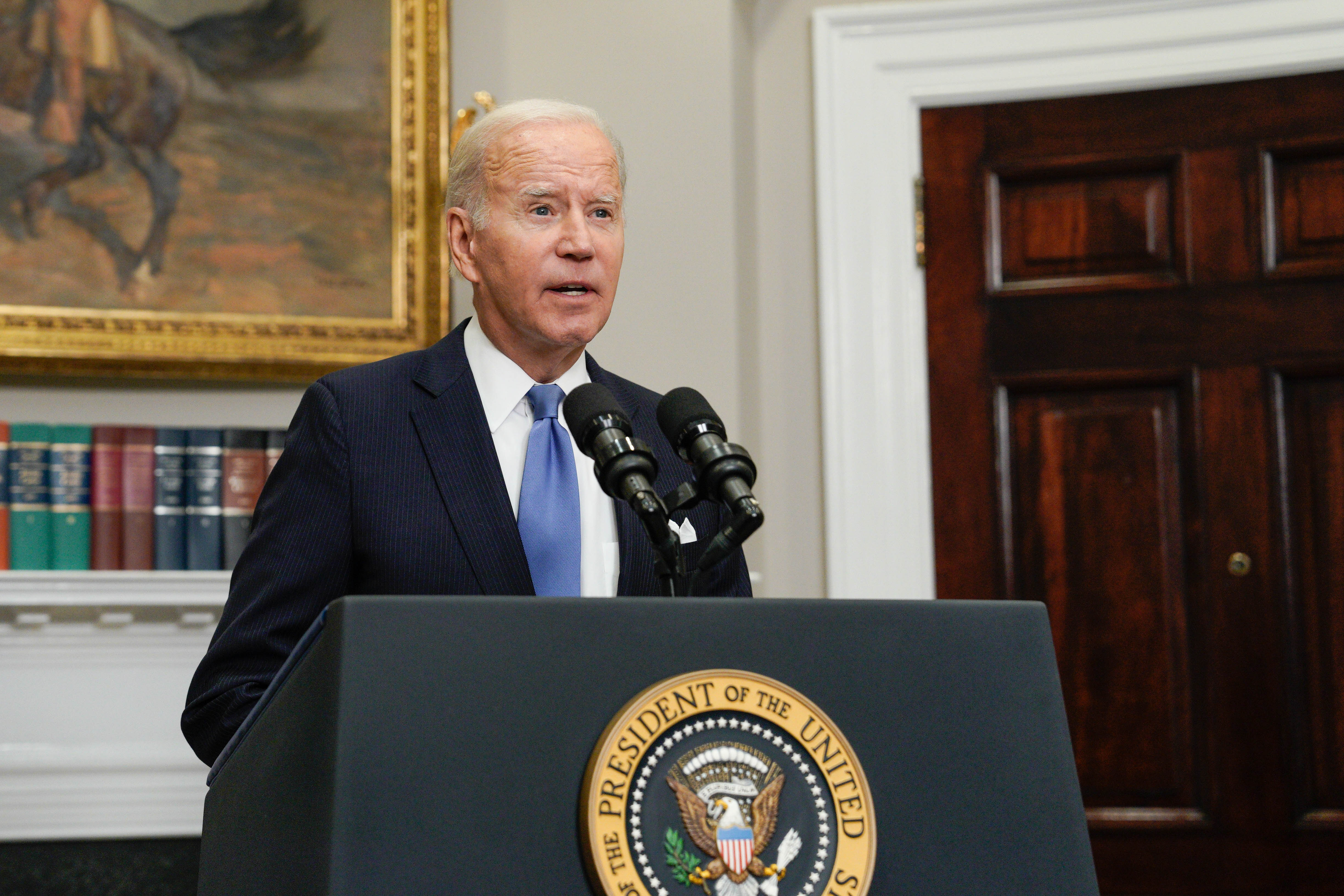United States brings home 7 detainees in prisoner swap with Venezuela


A free daily email with the biggest news stories of the day – and the best features from TheWeek.com
You are now subscribed
Your newsletter sign-up was successful
The White House announced that a group of seven Americans were released from captivity during a prisoner swap in Venezuela on Saturday, in what marked a rare exchange of political goodwill between the two countries.
In exchange for the release of the American detainees, the United States released a pair of nephews of Venezuelan President Nicolás Maduro's wife. The two men had been held in the U.S. on narcotics charges and were released back into the custody of the Venezuelan government.
In a statement, President Biden said the seven Americans "will soon be reunited with their families and back in the arms of their loved ones where they belong."
The Week
Escape your echo chamber. Get the facts behind the news, plus analysis from multiple perspectives.

Sign up for The Week's Free Newsletters
From our morning news briefing to a weekly Good News Newsletter, get the best of The Week delivered directly to your inbox.
From our morning news briefing to a weekly Good News Newsletter, get the best of The Week delivered directly to your inbox.
"I am grateful for the hard work of dedicated public servants across the U.S. government who made this possible, and who continue to deliver on my administration's unflinching commitment to keep faith with Americans held hostage and wrongfully detained all around the world," the president added. "Today, we celebrate that seven families will be whole once more."
Sources told The Associated Press that the swap took place on the island of St. Vincent and Grenadines — a Caribbean ally of Venezuela. The transfer of the prisoners follows a months-long negotiation process between the two countries, whose relations have soured in recent years due to the policies of Maduro and his predecessor.
Since rising to power in 2013, Maduro and his socialist government have presided over nationwide supply shortages that have led to poverty and hunger crises. Maduro's administration has also been accused of human rights violations and persistent corruption. Some politicians have said that he runs Venezuela as a dictatorship.
Following a political crisis in 2019, a split occurred between the country's Supreme Tribunal and National Assembly, the latter of which declared Maduro to have lost his re-election bid. The United States, along with many other Western nations, no longer recognizes him as the legitimate president of Venezuela, instead choosing to recognize social democrat Juan Guiadó as the country's leader.
A free daily email with the biggest news stories of the day – and the best features from TheWeek.com
Justin Klawans has worked as a staff writer at The Week since 2022. He began his career covering local news before joining Newsweek as a breaking news reporter, where he wrote about politics, national and global affairs, business, crime, sports, film, television and other news. Justin has also freelanced for outlets including Collider and United Press International.
-
 Gwen John: Strange Beauties – a ‘superb’ retrospective
Gwen John: Strange Beauties – a ‘superb’ retrospectiveThe Week Recommends ‘Daunting’ show at the National Museum Cardiff plunges viewers into the Welsh artist’s ‘spiritual, austere existence’
-
 Should the EU and UK join Trump’s board of peace?
Should the EU and UK join Trump’s board of peace?Today's Big Question After rushing to praise the initiative European leaders are now alarmed
-
 Antonia Romeo and Whitehall’s women problem
Antonia Romeo and Whitehall’s women problemThe Explainer Before her appointment as cabinet secretary, commentators said hostile briefings and vetting concerns were evidence of ‘sexist, misogynistic culture’ in No. 10
-
 Will increasing tensions with Iran boil over into war?
Will increasing tensions with Iran boil over into war?Today’s Big Question President Donald Trump has recently been threatening the country
-
 Rubio boosts Orbán ahead of Hungary election
Rubio boosts Orbán ahead of Hungary electionSpeed Read Far-right nationalist Prime Minister Viktor Orbán is facing a tough re-election fight after many years in power
-
 Key Bangladesh election returns old guard to power
Key Bangladesh election returns old guard to powerSpeed Read The Bangladesh Nationalist Party claimed a decisive victory
-
 US, Russia restart military dialogue as treaty ends
US, Russia restart military dialogue as treaty endsSpeed Read New START was the last remaining nuclear arms treaty between the countries
-
 Epstein files topple law CEO, roil UK government
Epstein files topple law CEO, roil UK governmentSpeed Read Peter Mandelson, Britain’s former ambassador to the US, is caught up in the scandal
-
 Iran and US prepare to meet after skirmishes
Iran and US prepare to meet after skirmishesSpeed Read The incident comes amid heightened tensions in the Middle East
-
 Which way will Trump go on Iran?
Which way will Trump go on Iran?Today’s Big Question Diplomatic talks set to be held in Turkey on Friday, but failure to reach an agreement could have ‘terrible’ global ramifications
-
 EU and India clinch trade pact amid US tariff war
EU and India clinch trade pact amid US tariff warSpeed Read The agreement will slash tariffs on most goods over the next decade
